Greetings Ringers – Today TheOneRing.net is proud to share a Tolkienian analysis from esteemed Y.A. author/editor Henry Herz who takes us closer to the Irish myths mined by Guillermo del Toro for Hellboy II and the remarkable connections to Fëanor himself.
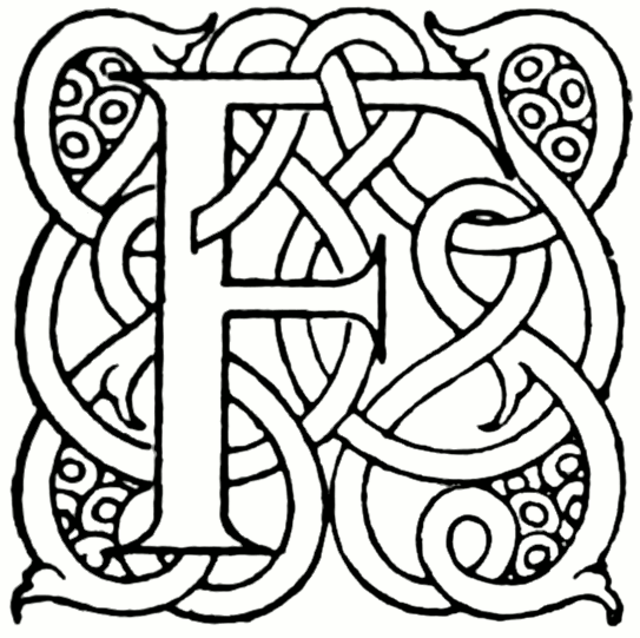
Irish Influences
Astute observers of the film Hellboy II: The Golden Army will note multiple references to Irish mythology. The full name of Hellboy’s antagonist is Nuada Silverlance. The first king of the Tuatha Dé Danann, the gods of Irish mythology, was Nuada Airgetlám (silver hand/arm). The Irish Nuada lost his limb fighting against the Fir Bolg at the first Battle of Mag Tuired. It was subsequently replaced with a silver one made by Dian Cecht, the god of healing, and a smithing god, either Creidhne or Goibniu (sources vary). Balor of the Evil Eye, a giant one-eyed Formorian leader kills the silver-handed Nuada twenty years later at the second Battle of Mag Tuired. In Hellboy II, Nuada’s Gaelic-speaking father is King Balor of Bethmoora in Northern Ireland.
On the one hand…
A lost hand like Nuada Airgetlám’s occurs more than once in myths, ancient and modern. The Professor himself was no stranger to tales of the Irish gods…nor the Norse. After all, the ferocious fettered Fenris Wolf takes off the god Tyr’s hand. Tolkien’s giant wolf Carcharoth similarly bites off Beren’s hand, and with it one of Fëanor’s treasured Silmarils.

Hellboy II features three characters with missing hands. The main character, Hellboy, possesses an oversized, red stone Right Hand of Doom, grafted in place by his demon father, Duke Azzael. Although the movie does not emphasize the matter, King Balor’s left arm appears to be made of wood, ending in a silver hand—a clear wink at Irish mythology. Speaking of wink, the cave troll Wink wields a mechanical right hand that can be launched like a projectile and retrieved via a heavy chain—quite a handy feature.
But is there a more subtle linkage in play here? Did movie writer Mike Mignola and/or director Guillermo Del Toro derive inspiration from a more contemporary model for Nuada than Irish mythology? Was their fierce and tragic elf inspired by J.R.R. Tolkien’s character from The Silmarillion, Fëanor? The parallels are numerous and striking.
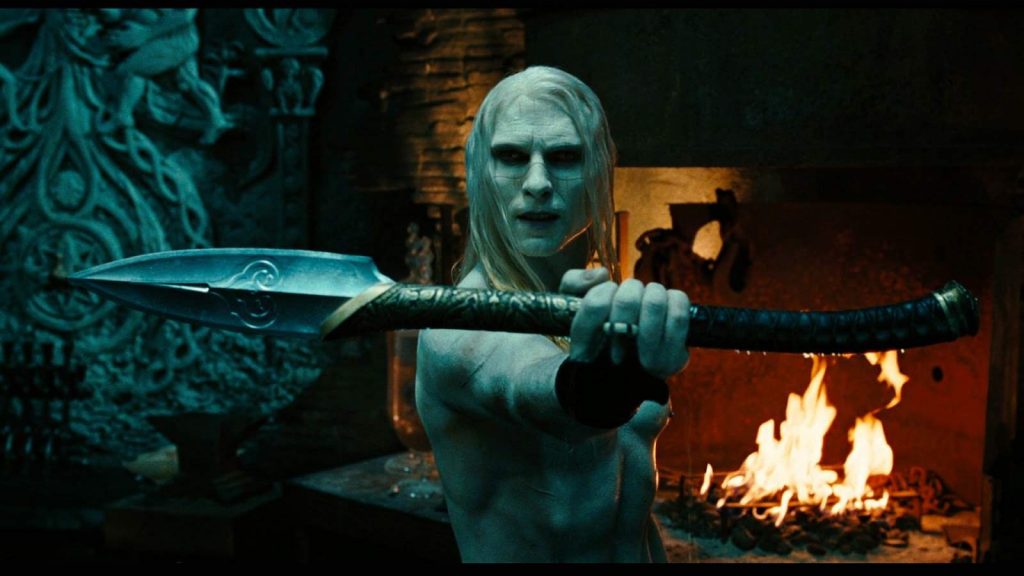
Family Lost
Fëanor is a prince of the Noldor (deep elves), eldest son of King Finwë. His mother, Míriel, passes away after delivering so powerful a progeny, “consumed in spirit and body.” Finwë remarries and fathers two more sons, Fingolfin and Finarfin. Their father is murdered by Morgoth, the spark that will eventually set all Middle-earth aflame.
Like Fëanor, Nuada is an elven prince, the only son of King Balor of Bethmoora. Hellboy II makes no references to Nuada’s mother in either the action or its expository prologue. Her absence is as notable as Míriel’s. Nuada’s father is slain by his son’s own hand. Thus, both princes begin the tragic arc of their lives without mothers and later violently robbed of their immortal fathers.
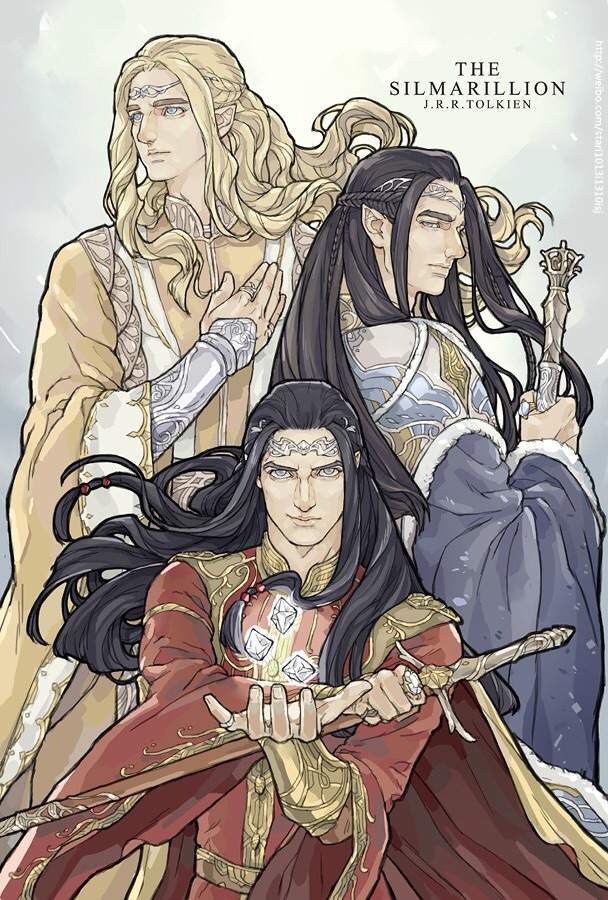
Skills and Crafts
Fëanor is the most gifted smith in all Middle-earth and Valinor. He devises the Tengwar script used to write the Elven tongues Quenya, Telerin, and Sindarin. He crafts the palantíri, crystal spheres used for communicating over long distances. Fëanor’s greatest accomplishment was creating the three Silmarils, imperishable sacred jewels that captured the light of the Two Trees that illuminated the world. He is also credited with forging fell swords and tall helms with plumes of red. It is probably a safe assumption, then, that his sword would be of the highest quality and likely magical in nature. His prodigious fighting skills can be deduced from the fact that he battles multiple Balrogs without being pounded into elf-paste.
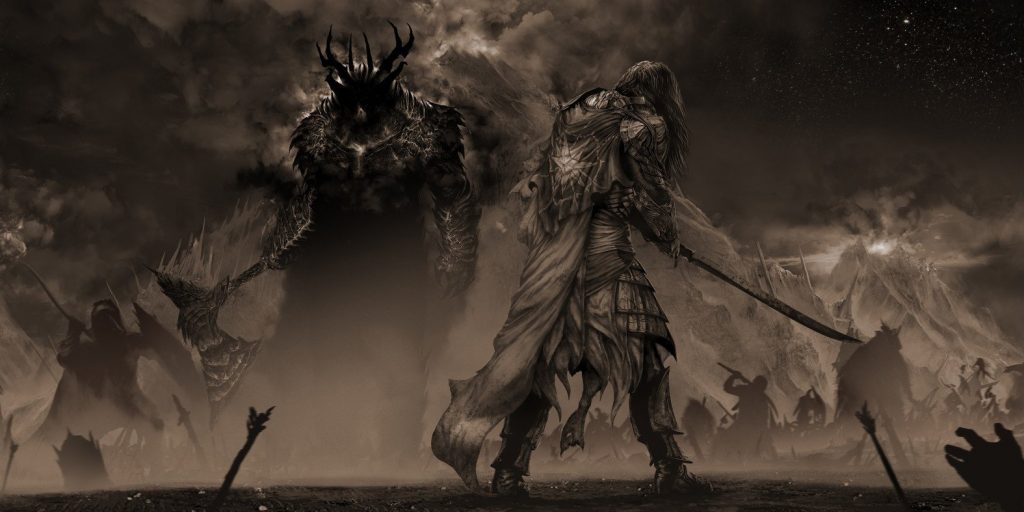
Like Fëanor, Nuada is a fierce fighter. His superb sword play and athleticism is on full display in Hellboy II, thanks to actor Luke Goss. He demonstrates great skill with both swords and spear. The latter is magical, capable of lengthening at Nuada’s command, and if the tip of it is broken off in an enemy, it works its way toward the victim’s heart. He also evidences skill as a smith. We see him constructing a device to hold the seed of a forest elemental. And as one might expect of an elven smith, he seems impervious to heat when he recovers a metal cylinder from flames with his bare hand.
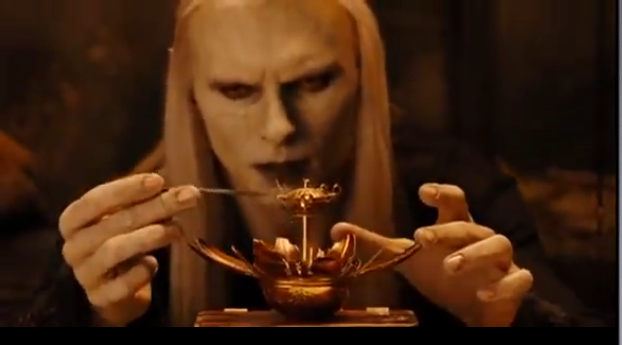
Strife and Exile
His heart poisoned by Morgoth’s deceptions, Fëanor accuses his half-brother Fingolfin of plotting to usurp him as Finwë’s heir. The Valar (the gods) exile Fëanor to Formenos as punishment for threatening his brother’s life. There he stores the Silmarils with other treasure, and there Finwë joins him.
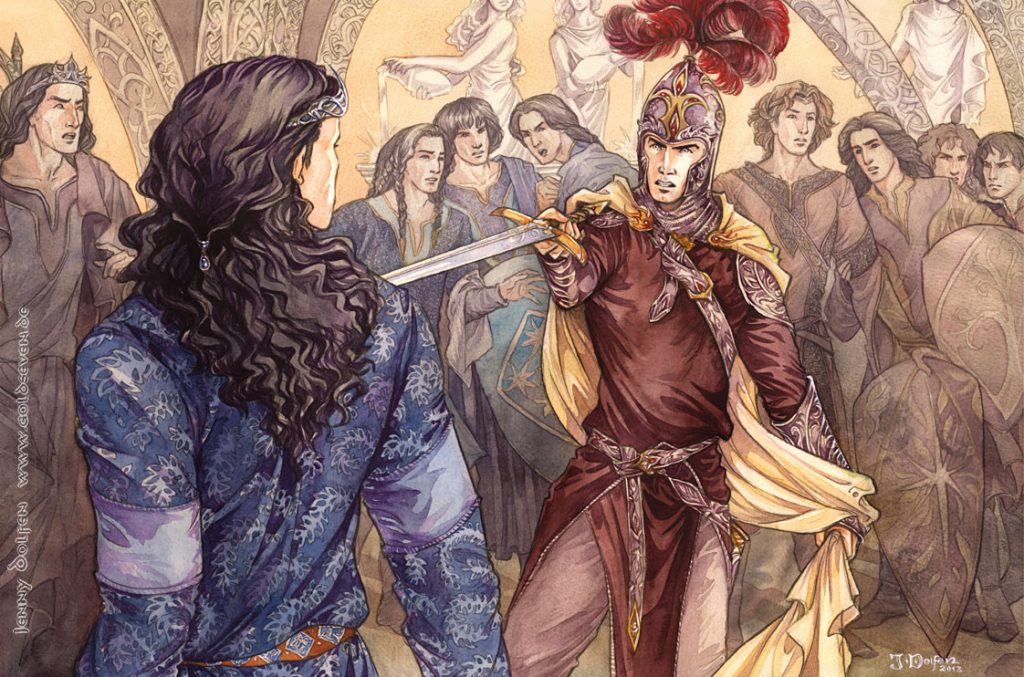
In the Hellboy II backstory, greedy humans wage war against the elves, goblins, trolls, and other magical creatures. A goblin master blacksmith offers to build King Balor an unstoppable mechanical army that can be controlled with a magical Golden Crown. Nuada persuades his father to accept the weapon and unleash the Golden Army against humanity. After widespread slaughter, a truce is reached. The horrified King Balor breaks the crown into three pieces so this ultimate weapon will not be used again. Enraged by his father’s decision not to finish off humanity, Nuada goes into self-imposed exile.
Rage and Kinslaying
With the giant spider Ungoliant’s aid, Morgoth mortally wounds the Two Trees that illumine the world. When the Valar ask to use the light trapped within the Silmarils to restore the stricken Trees, Fëanor refuses. “It may be that I can unlock my jewels, but never again shall I make their like; and if I must break them, I shall break my heart.” (Tolkien, 1977)
Morgoth murders Fëanor’s father at Formenos, steals the three priceless Silmarils, and flees to Middle-earth. Fëanor vows revenge, tinged with a racial element that Nuada echoes in Hellboy. “After Morgoth to the ends of the Earth! War shall he have and hatred undying. But when we have conquered and have regained the Silmarils that he stole, then behold! We, we alone, shall be the lords of the unsullied Light, and masters of the bliss and the beauty of Arda! No other race shall oust us!” (Tolkien, 1977)
Mad with grief and anger, Fëanor and his sons swear a terrible oath, leading many Noldor into exile from Valinor to pursue Morgoth and recover the Silmarils.
“They swore an oath which none shall break, and none should take, by the name even of Ilúvatar, calling the Everlasting Dark upon them if they kept it not…vowing to pursue with vengeance and hatred to the ends of the World Vala, Demon, Elf or Man as yet unborn or any creature, great or small, good or evil, that time should bring forth unto the end of days, whoso should hold or take or keep a Silmaril from their possession.” (Tolkien, 1977)
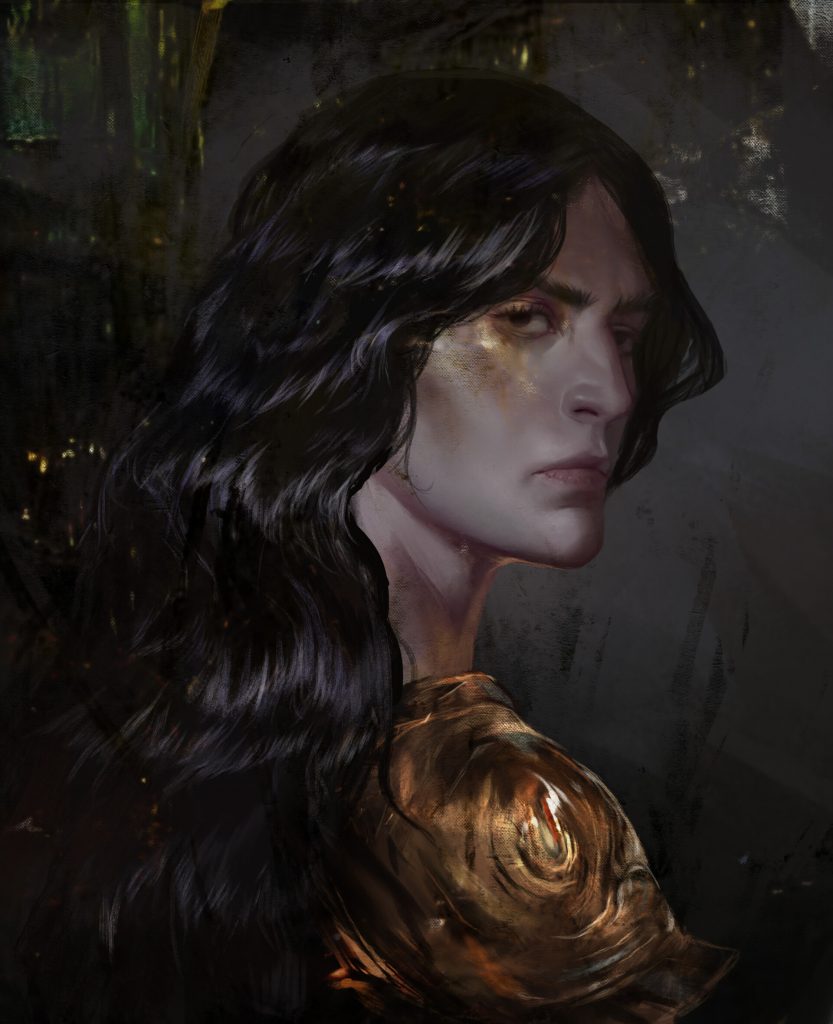
Bella Bergolts
When the seafaring Teleri refuse to lend the Noldor their ships for the journey to Middle-earth, Fëanor orders the vessels taken by force. Many Elven lives are lost in what came to be called the Kinslaying at Alqualondë.
Raging at human greed and the destruction they bring to the earth, Nuada vows to annihilate his enemy. He breaks his father’s treaty, murdering some humans to take possession of one of the three pieces of the Golden Crown. Nuada appears at his father’s court, demanding the other crown pieces from his sister and his father so he can order the Golden Army to wipe out humanity, saving the earth thereby. “I have returned from exile to wage war and reclaim our land, our birthright! And for that I will call upon the help of all my people and they will answer.”
But King Balor refuses, and when Nuada will not be dissuaded from his violent plans, Balor reluctantly orders his son killed. Instead, Nuada slays the royal guard and his father in the greatest sword fight scene in cinematic history. His sister flees with the final piece of the Golden Crown.
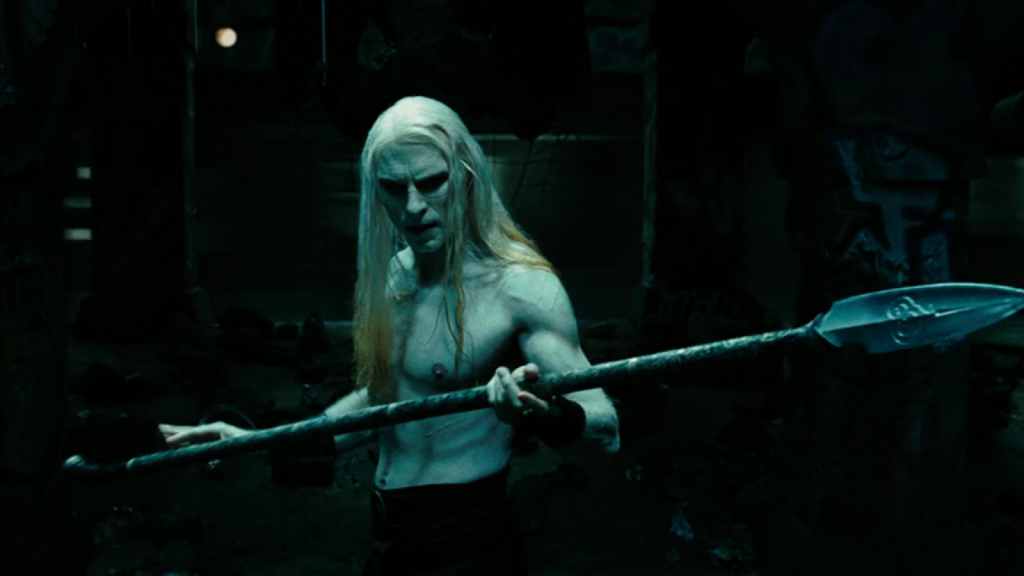
Doom
Tragedy leads to more tragedy. The Valar lay a horrible curse, the Doom of Mandos, upon Fëanor and his followers for the Kinslaying. The Noldor must have shuddered to hear it.
“Tears unnumbered ye shall shed; and the Valar will fence Valinor against you, and shut you out, so that not even the echo of your lamentation shall pass over the mountains. On the House of Fëanor the wrath of the Valar lieth from the West unto the uttermost East, and upon all that will follow them it shall be laid also. Their Oath shall drive them, and yet betray them, and ever snatch away the very treasures that they have sworn to pursue. To evil end shall all things turn that they begin well; and by treason of kin unto kin, and the fear of treason, shall this come to pass. The Dispossessed shall they be for ever.”
“Ye have spilled the blood of your kindred unrighteously and have stained the land of Aman. For blood ye shall render blood, and beyond Aman ye shall dwell in Death’s shadow. For though Eru appointed to you to die not in Eä, and no sickness may assail you, yet slain ye may be, and slain ye shall be: by weapon and by torment and by grief; and your houseless spirits shall come then to Mandos. There long shall ye abide and yearn for your bodies, and find little pity though all whom ye have slain should entreat for you. And those that endure in Middle-earth and come not to Mandos shall grow weary of the world as with a great burden, and shall wane, and become as shadows of regret before the younger race that cometh after. The Valar have spoken.” (Tolkien, 1977)
Shortly after arriving on the shores of Middle-earth, Fëanor’s army is assaulted by Morgoth’s. The Elves are triumphant, and still enraged, Fëanor presses on toward Morgoth’s fortress at Angbad. Ambushed by a force of Balrogs, Fëanor is mortally wounded. He is denied his vengeance and instead Elves, Humans, and Dwarves must endure centuries of death and destruction inflicted by Morgoth until he is finally overthrown by the Valar.
Like Fëanor, Nuada will stop at nothing to see his plan complete. In the end, even he recognizes the depths of his own madness. When Hellboy defeats Nuada for control of the Golden Army, Nuada responds, “Kill me. You must. For I will not stop. I cannot.” Hellboy will not murder the elf. When Nuada moves to strike Hellboy from behind, Nuada is slain by his selfless sister’s suicide, the twins being magically linked. Hellboy has Liz destroy the crown with fire, reminiscent of when another potent talisman, the One Ring, melts in the fires of Mt. Doom.
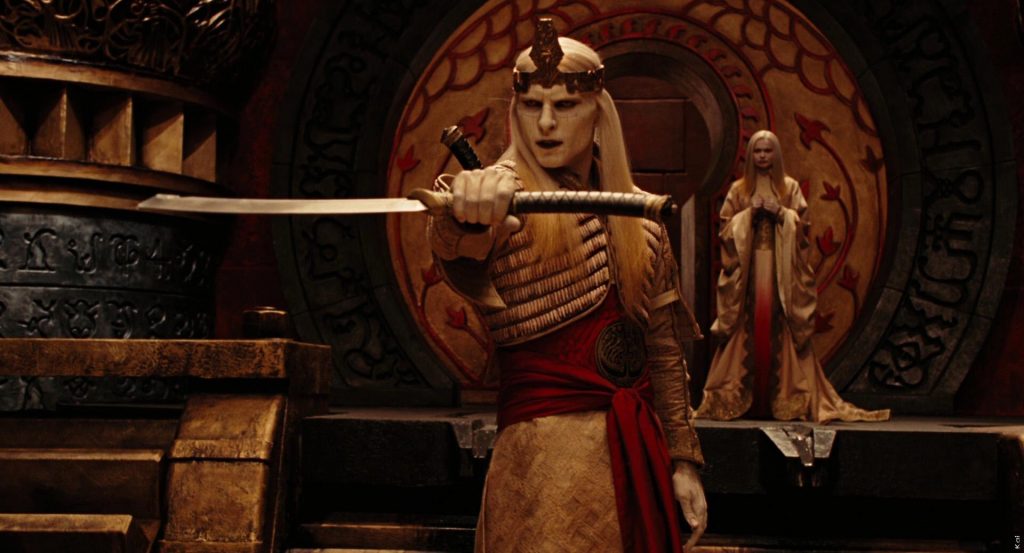
Fading and Melancholy
In The Fellowship of the Ring: Extended Edition, Samwise Gamgee observes Elves departing Middle-earth for Valinor, never to return. “It makes me sad. I don’t know why.” The Bethmooran elves are fading as well, as symbolized by the incongruously falling leaves inside Balor’s throne room. Nuada proclaims in the end, “We die, and the world will be poorer for it.” Whether or not Mignola and Del Toro modeled their Nuada on Tolkien’s Fëanor, they forged an entertaining and poignant movie in which, just as in The Silmarillion, we lament the passing of magic.
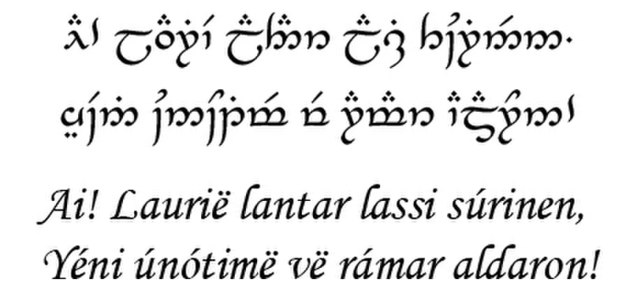
Ah! like gold fall the leaves in the wind, long years numberless as the wings of trees! From Namárië (Galadriel's Lament)
*Learn much more about Henry Herz’ Y.A. and Children’s books (and also the delightful works co-authored with his two sons) here at www.henryherz.com
References:
Tolkien, J.R.R., 1977. The Silmarillion, Quenta Silmarillion, “Of the Flight of the Noldor”
Notes:
The John Bauer and Celtic knot images are public domain from Wikimedia Commons.


